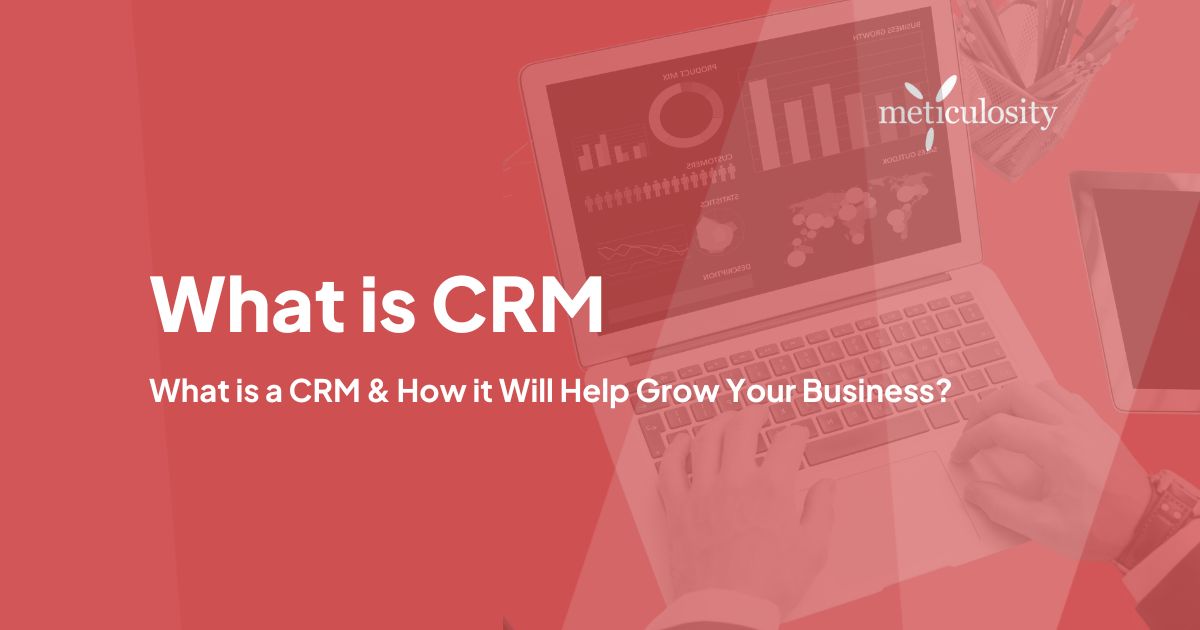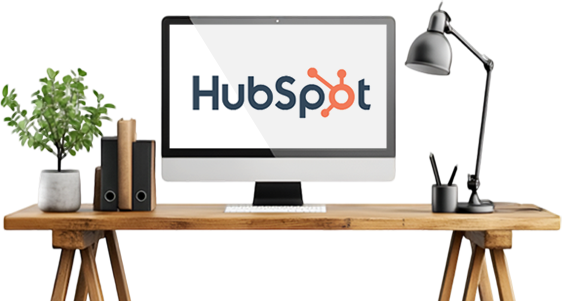CRM is a business system used to manage. However, what does it mean? How can you leverage it to improve your company’s relationships with its current and potential customers?
What is a CRM?
Customer relationship management (CRM) is a technology for managing all your company's relationships and interactions with customers and potential customers. The goal is simple: Improve business relationships.
/Imported_Blog_Media/what-is-crm.jpg?width=1200&height=685&name=what-is-crm.jpg)
Understanding the Nature of a CRM
As the name implies, a CRM must involve an effective system for managing your organization's relationships with its customers. In the days before automation, this information spanned several departments.
There was the sales department, which knew the customer personally. In many cases, it involved a personal relationship with a dedicated sales professional. The accounting department knew the customer as someone who paid their invoice as soon as it arrived on their desk. The company’s owner may have met the customer or knows about them from the sales team.
While this works for the mom-and-pop shop, it is not an effective way of running a large corporation. In fact, any growing business must have a way to provide customer information access to all the departments that need it. Therefore, a CRM becomes a central hub for this data. (Did you know that you could immediately get HubSpot CRM for FREE?)
Because speed is of the essence in a competitive business environment, everyone in your organization needs to interact with consumer data effectively. Marketing needs to know who the customers are. The website team has to understand how consumers are interacting with the content. Without a data hub, gathering this information would be laborious and repetitive – and, therefore, time-consuming.
Look at it from the customer’s point of view. They’re looking for a cohesive experience. They want the same good-natured, well-informed expert when asking about a bill as they want when discussing a product package upgrade. If there’s a disconnect, it becomes jarringly clear.
This level of consistency is only possible when your team understands each customer’s needs, wants, and interactive past. A CRM provides the framework for achieving the customer's and your team's desired experience.
Who Benefits from CRM Use?
There’s little doubt that large corporations must look to CRM to provide the consumer with an individualized buying experience. However, it would be simplistic to suggest that only the multi-national organization needs this type of management system.
Rather, it’s something that benefits the small business that has plans to grow. Cases in point are the B2C companies that build direct relationships with an individual. Do you know the company that’s mowing your yard? This type of business is an excellent example of a B2C organization. Your landscaper knows that you like the foxtails trimmed rather than cut. Therefore, you don’t come home to a landscape that looks butchered.
In contrast, there are the B2B companies. They frequently have relationships with departments and not necessarily individuals. Even so, they must have access to the client history, which reveals the service packages that a company bought. From there, it’s possible to foster a long-term relationship by offering upgrades and associated training.
As a general rule of thumb, your business will benefit from putting a customer relationship management system in place if you currently have this data spread over several departments. Moreover, when your customers have access to different departments, it’s essential for this data to be centrally accessible. Most importantly, you cannot go wrong with implementing this system when you want to boost sales team effectiveness.
Is There a Wrong Time to Introduce a CRM?
In a word, no. As soon as you realize that the spreadsheet isn’t working for your company any longer, it’s time to try the CRM. Consider that the spreadsheet approach is very one-sided. In real life, your customer’s interactions with the various departments are multi-faceted. Therefore, there has to be a better way of chronicling these interactions.
Most importantly, remember that your memory of the customer’s wants and needs is only as good as the person who has it in their mind. If your sales rep is currently the hub for customer information, what would happen if this employee left the firm? They would take the information with them. Rebuilding it takes time.
Meanwhile, many sales opportunities go by the wayside. Worse still, your customers may not receive the service they’re looking for. Therefore, you may see some losses. You can avoid this type of problem by introducing a CRM at this point. No matter how big or small your company is, it’s never too early or too late to bring the system into play.
Of course, there’s a price point to consider, too. When you enlist the help of a company to customize your system, you may be charged a per-user fee. The more users access the data, the higher the cost.
Other costs you might encounter have to do with the size of your data storage needs. The more customers you’re keeping track of, the more storage fees you will accrue. Of course, unless your data storage needs exceed gigabyte proportions, this will most likely not affect you.
Then, there’s the free HubSpot tool, which is an excellent introductory tool that meets your needs and won’t bust the budget.
Where is CRM Going?
It’s clear why a good-quality CRM came into being in the first place. It filled the need for information and relationship management. Without it, a growing business would experience problems. Moreover, customers, too, would have issues with their consumer experiences.
However, where is the technology heading? What’s the next step? Experts agree that this system is results-driven. Only those who provide it will survive. At this point, some predictors are in place.
- A move toward simplicity. Systems shouldn’t be challenging to learn. Therefore, they should be intuitive to use for all members of the organization.
- A move toward automation. Data entry is time-consuming. Because sales teams typically have the most interactions, it’s up to them to key in the data. Unfortunately, this time could be better spent interacting with prospective customers. Therefore, a lot of the data will come into the system via automated processes.
- A move toward AI. Artificial intelligence will populate your system with insights about consumer behavior. This could be a social media interaction or a website content engagement.
Can You Successfully Grow Your Organization without Adequate CRM?
CRM systems are here to stay. They are the digital equivalents of the index card or the sales rep’s memory. Besides that, they will make or break your competitive edge. Consider also that the CRM meaning involves the consumer. Without managing expectations through past interactions, keeping buyers brand-loyal is virtually impossible.
Another reason why CRM is so important is the constant addition of new engagement opportunities. Therefore, you need a system that’ll grow with your company. Think of the new social media networks that aren’t even in existence yet. Maybe there are some that you haven’t branched out to but will do so in the coming months. Your system must be able to incorporate the experiences of customers on these channels, too.
By the way, rapid growth is a real thing. You might be tomorrow’s seller of the hottest product or service on the market. Suddenly, you’re flooded with inquiries about the product. These sales leads could easily get lost if you don’t have a customer relationship management system in place that will capture them as they come in.
Similarly, the system succeeds in incorporating bits of data into the workflow. This workflow may change as your organization grows and new departments come online, but the data is available to everyone who needs it.
Without any CRM in place, you’ll hamper your team's productivity. You might not see it right now. But it’ll happen as you grow. Your sales team takes longer to sift through notes and emails to find the information they’re looking for. As team members leave the company, you lose valuable information that is currently only stored in their memories.
Therefore, your business will gradually fall behind. It won’t happen overnight. However, you might see a gradual decline in leads and closes. Moreover, there’s going to be an incremental increase in your competition’s leads and closes. While your company is a relevant player today, you might not be there tomorrow. Can you really afford to lose your edge because you didn’t sign up for a free CRM tool?








